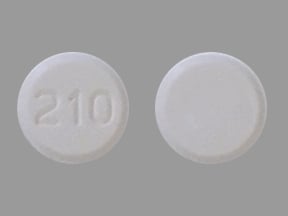
Norvasc Coupons & Savings Card – Discount Prices from $8.85
Brand for: Amlodipine
My prescription
Edit
5MG, Amlodipine (30 Tablets)
Select pharmacy

CVS
$18.72
COUPON PRICE
Albertsons
$8.85
COUPON PRICE
Walgreens
$9.34
COUPON PRICE
Walmart
$15.11
COUPON PRICENorvasc savings card
Show this card to your pharmacist
Albertsons
$8.85
BIN
ID
PCN
GRP
015995
LHKRC267370
GDC
DR33
Powered by
Related calcium channel blockers prescriptions
More prescriptions for hypertension
Related calcium channel blockers prescriptions
More prescriptions for hypertension
Price history for Norvasc (brand) & Amlodipine (generic)
30 Tablets, 5MG
Average retail price for Norvasc
Average retail price for Amlodipine
Average SaveHealth price for Amlodipine
Our price history data is based on aggregated prescription data collected from participating pharmacies in America. Our prescription data updates daily to reflect the latest price changes. If you notice a missing data point, it means there wasn't sufficient data available to generate a monetary value for that date.
Over the last 12 months, the average discount price of Norvasc is $11.62 using the SaveHealth savings card. That's an average savings of 96.26% on Norvasc with our discount card.
*Retail prices are based on pharmacy claims data, and may not be accurate when we don't have enough claims.
Norvasc (Amlodipine) dosage forms
Dosage Quantity Price from Per unit 2.5MG 15 Tablets $9.17 $0.61 2.5MG 30 Tablets $9.34 $0.31 2.5MG 45 Tablets $9.51 $0.21 2.5MG 60 Tablets $9.68 $0.16 2.5MG 90 Tablets $15.95 $0.18 2.5MG 180 Tablets $16.90 $0.09 5MG 30 Tablets $9.34 $0.31 5MG 10 Tablets $9.11 $0.91 5MG 60 Tablets $9.68 $0.16 5MG 90 Tablets $16.00 $0.18
| Dosage | Quantity | Price from | Per unit |
|---|---|---|---|
| 2.5MG | 15 Tablets | $9.17 | $0.61 |
| 2.5MG | 30 Tablets | $9.34 | $0.31 |
| 2.5MG | 45 Tablets | $9.51 | $0.21 |
| 2.5MG | 60 Tablets | $9.68 | $0.16 |
| 2.5MG | 90 Tablets | $15.95 | $0.18 |
| 2.5MG | 180 Tablets | $16.90 | $0.09 |
| 5MG | 30 Tablets | $9.34 | $0.31 |
| 5MG | 10 Tablets | $9.11 | $0.91 |
| 5MG | 60 Tablets | $9.68 | $0.16 |
| 5MG | 90 Tablets | $16.00 | $0.18 |
| 5MG | 135 Tablets | $16.49 | $0.12 |
| 5MG | 180 Tablets | $16.99 | $0.09 |
| 10MG | 7 Tablets | $9.12 | $1.30 |
| 10MG | 10 Tablets | $9.17 | $0.92 |
| 10MG | 15 Tablets | $9.25 | $0.62 |
| 10MG | 30 Tablets | $9.50 | $0.32 |
| 10MG | 45 Tablets | $9.76 | $0.22 |
| 10MG | 60 Tablets | $10.01 | $0.17 |
| 10MG | 90 Tablets | $16.47 | $0.18 |
What is the most common side effect of Norvasc?
The most common side effect of Norvasc (amlodipine) is swelling of the ankles or feet, also known as peripheral edema.
Is Norvasc a good blood pressure pill?
Norvasc, which contains the active ingredient amlodipine, is commonly prescribed to help manage high blood pressure. It is considered effective for many patients in lowering blood pressure and reducing the risk of cardiovascular events. However, its suitability can vary based on individual health conditions and response to the medication. It is important for patients to consult with their healthcare provider to determine if Norvasc is appropriate for their specific situation.
What foods should not be eaten with amlodipine?
When taking amlodipine, it is generally advised to avoid consuming grapefruit or grapefruit juice. Grapefruit can interfere with the metabolism of amlodipine, potentially leading to increased levels of the medication in the bloodstream and an increased risk of side effects. It is always best to consult with a healthcare provider for personalized dietary recommendations while on medication.
Do Norvasc side effects go away?
Some side effects of Norvasc (amlodipine) may diminish over time as the body adjusts to the medication. Common side effects like dizziness, flushing, or swelling in the ankles and feet might improve after a few days or weeks. However, if side effects persist or become bothersome, it is important to consult a healthcare provider. They can provide guidance on managing side effects or consider adjusting the treatment plan if necessary.
Why do doctors prescribe Norvasc?
Doctors prescribe Norvasc primarily to treat high blood pressure (hypertension) and certain types of chest pain (angina). It helps to relax and widen blood vessels, improving blood flow and reducing the heart's workload. This can help prevent strokes, heart attacks, and kidney problems.
